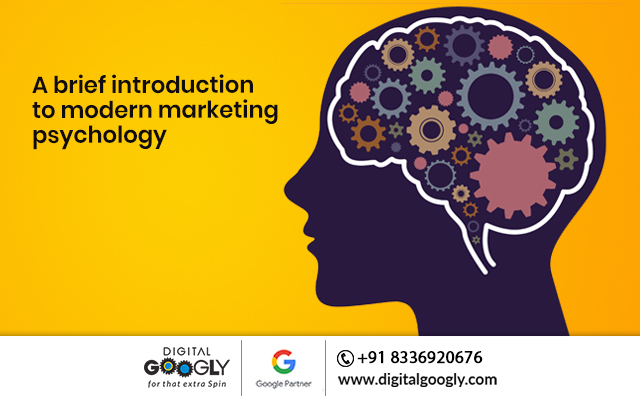Psychology is all pervasive in every sector of society, and marketing is no exception in this regard. It won’t be superfluous to assert that marketing in 2023 is entirely psychological. The digital marketing companies in Kolkata are bent on harnessing the power of marketing psychology to boost ROI for their clients. In this article, we delve into how psychology plays an important role in modern marketing.
Psychology & Marketing: An overview
Analysing and predicting human behaviours and understanding intrinsic human needs and desires have always been crucial considerations since the dawn of modern marketing. Then what changes now? What changes as digital marketing comes to the fore?
With the emergence of digital marketing and the rise of digital marketing agencies, we are confronted with a different kind of audience, the audience in the digital sphere.
In other words, audiences who are surfing the internet in search of products and services are the target of modern digital marketing. Hence, marketing psychology puts increasing focus on what can get to the mind of the audience right away since the internet is vast and audiences are fickle and quick to jump from one content to another.
Hence, the challenge to a digital marketing agency in Kolkata lies in specifically this: how to craft content that can captivate the attention of the fleeting audience in the vast space of the internet?
The psychological tools to conduct marketing in 2023
Psychology has an answer to the above-mentioned conundrum. There are many strategies available that can help marketers get into the minds of the audience and win their exclusive attention. Below are a few of these strategies:
The validation of the others
Marketing psychology has found that people tend to follow others’ actions and recommendations. The desire we have is the desire of others. Hence, client testimonials and feedback are extremely crucial weapons in modern digital marketing. Sharing positive feedback and testimonials can attract new leads to a brand’s products and services.
Reciprocations
Human beings tend to reciprocate favours and gifts bestowed on them. They do it as a token of gratitude. Digital marketers use this reciprocity tactic to sell products. Sometimes, gifting your clients vouchers, free samples, or discounts can incite the latent buyers in them.
The decoy paradox
Let’s assume two items: one is extremely fancy, and the other is not so much. When we put them side by side, the audience will be automatically drawn to the fancier one, and they might even resolve to cash in. In comparison to the banal item or the decoy, the other item glows in a more incandescent shine. A lot of companies tend to offer decoy products to indirectly highlight their main offerings. Witty, isn’t it?
The endowment principle
People tend to ascribe greater values to the items they possess than the other identical items. A sense of ownership creates this cognitive bias. Marketers can exploit this bias by offering trial periods, product samples, test drives, etc., to arouse in prospective customers a sense of ownership.
The anchoring effect
Have you ever wondered why all these digital marketing companies are so obsessed with crafting powerful hooks? There is an underlying psychological reason. Humans tend to rely heavily on anchors that fascinate them, puzzle them, or raise questions in their minds. Often, these hooks can prompt past memories and trigger certain pleasurable or distressful sensations. But that is precisely your success as a marketer: to get right into their minds!
Psychology has always been an indispensable part of marketing. However, there are a lot more avenues to explore in marketing psychology in the digital epoch. Why don’t you set sail with us and find out how our expertise in marketing psychology can garner more ROIs?

